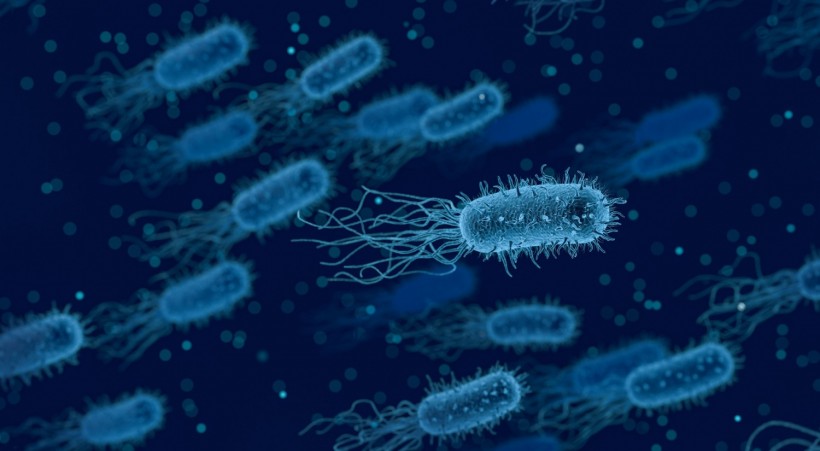As the name indicates, you might think gut bacteria are microorganisms only associated with digestion, but that's not so! Most of you would be familiar with the concept of gut bacteria essential for a healthy living body. The extensive microscopic study showed that a human gastrointestinal tract (GIT) is surrounded by more than 1014 bacteria that, if we see, are ten times more than the entire human body cells.
Today, we will discuss the role of gut bacteria on human health and its contribution to various diseases. Typically talking, gut microbiota plays a critical role in developing the immune system, normal body functioning, and CNS functions. Just like that, the disturbances in its normal functioning can lead to various diseases, including cardiovascular diseases, psychological disorders, GIT issues, obesity, multiple allergies, etc.
Let's head towards understanding what gut bacteria are before we go into the details.
Know the Gut Bacteria
A human gut comprises almost three hundred to five hundred bacteria types, showing variations through approximately two million genes. Although viruses and fungi differ from bacteria, they still pair up to create a microbiota. Additional studies examined microbiota, and the samples were checked under microscopes. It revealed that every person has a unique microbiota, just as they possess a distinct fingerprint. The variations partially appear through your mother's microbiota, even before the time you're born or during breastfeeding. The rest of the uniqueness comes from your lifestyle and eating habits.
Bacteria can be good or bad, living throughout a person's body, but gut bacteria have a special place! They greatly influence a human's well-being by lining one's entire digestive tract. Observing through microscopes, we learned that most gut bacteria reside in the intestines and colon. Now that we know its location in the body let's move towards comprehending how it impacts human health and diseases.
Gut Bacteria & Human Health
Nature has defined many aspects through which our gut bacteria maintain their overall health. The principal effects of these millions of microbes include preventing pathogenic growth, regulating gut development, strengthening immunity, preserving epithelial integrity, etc. Gut bacteria are also known to shape neuronal development and promote CNS functioning.
Different gut bacteria collectively regulate tight junction permeability to preserve epithelial integrity. One of the common examples is the Lactobacillus plantarum that helps regulate proteins to protect the epithelial lining from chemical disruption. There are countless other ways through which these bacteria benefit a human's health. These are known to:
-
Conduct gut motility
-
Produce multiple vitamins
-
Maturation and functioning of microglia, etc.
According to the bio madam, some of the successful studies put forward that gut microbiota has a massive influence on the development and functioning of the Central Nervous System. As it promotes CNS health, disturbances in microbiota can also cause various neurological problems. However, the good part is that these studies are experimented on animals and still not applied to humans.
Other than that, a newborn can develop a healthy gut if and only if the associated pregnant woman is living a healthy life. It is said that the best thing a mother can transfer to her child is a balanced and healthy gut microbiota which can be achieved while she's pregnant. Whatever a mother eats gets transferred to the baby inside, contributing to the development of the gut system. Motherhow states that every pregnant woman should normalize healthy eating and an excellent lifestyle to develop a sound bacteria diversity in her baby.
To summarize, gut bacteria have a heavy influence on regulating human health. Not just physical fitness, but it also controls behavioral activities, such as emotional variations, social interactions, and anxiety-related factors.
Gut Bacteria & Diseases
The contribution of such bacteria varies from person to person. It'd be different in those living a useful life from people with various diseases. Diseased or sick people might lack some essential gut bacteria, leading to even more severe problems. It is also said that some of the bacteria inside your GIT promote the risk of several diseases. Let's continue reading them below:
Inflammatory Bowel Diseases
People dealing with certain inflammatory bowel diseases, for example, ulcerative colitis, have a deficiency in essential anti-inflammatory gut bacteria. The exact mechanism is still unknown, but experts are clear that it has turned into an auto-immune disorder, ending up in different stages.
Cardiovascular Diseases, Obesity, & Type-II Diabetes
As the gut bacteria reside inside your GIT, it affects your body's metabolism. The collective bacteria are responsible for regulating the number of calories you're taking and burning daily. They also take care of the nutrients being absorbed. But sometimes, a few abnormalities give rise to excessive bacteria that turn fibers into unhealthy fatty acids. These fatty acids eventually get deposited in the liver, at higher risk of developing metabolic syndrome. That's the point when a person starts experiencing obesity, cardiovascular diseases, and diabetes mellitus.
Anxiety & Depression
Gut bacteria affects not only physical health but also disturbs mental conditions. Our gastrointestinal tract is coordinated with numerous nerve endings to communicate with the brain quickly. Some doctors name it the gut-brain axis. Various studies till now showed precise shreds of evidence that abnormalities in gut bacteria and their diversity can result in CNS disorders, such as autism, anxiety, depression, etc.
Intestine & Colon Cancer
As most gut bacteria live in the intestine and colon, these areas are at greater risk of developing cancer. Patients with colon cancer were examined, and it revealed that such people possess a variating gut bacteria with maximum disease-causing microorganisms inside than healthy human beings.
Why is it Important to Keep the Gut Healthy?
Human beings cannot live without eating food, and all that food eventually goes to the gut system to be broken down into smaller pieces. These smaller pieces shift to the bloodstream, and thus the body gets essential nutrients for proper functioning. If your gut wouldn't be healthy, it cannot perform well to provide energy to your body, and you'll end up having various diseases. In summary, a healthy gut is essential to have a healthy bacteria diversity, which further communicates with the body and the brain.
* This is a contributed article and this content does not necessarily represent the views of sciencetimes.com




![Sat-Nav in Space: Best Route Between Two Worlds Calculated Using 'Knot Theory' [Study]](https://1721181113.rsc.cdn77.org/data/thumbs/full/53194/89/56/50/40/sat-nav-in-space-best-route-between-two-worlds-calculated-using-knot-theory-study.png)










